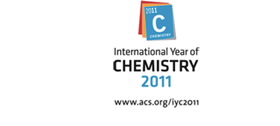FOR IMMEDIATE RELEASE | October 12, 2011
New American Chemical Society Podcast—Farmland floods do not raise levels of potentially harmful flame retardants in milk
WASHINGTON, Oct. 12, 2011 — As millions of acres of farmland in the U.S. Midwest and South recover from Mississippi River flooding, scientists report that river flooding can increase levels of potentially harmful flame retardants in farm soils. But the higher levels apparently do not find their way into the milk produced by cows that graze on these lands.
That’s the reassuring message in the latest episode in the American Chemical Society’s (ACS) award-winning “Global Challenges/Chemistry Solutions” podcast series.
Iain Lake, Ph.D., notes in the podcast that the flame retardants known as “PBDEs” are found in a variety of common household products, including furniture upholstery, clothes, plastics and electrical equipment. These substances are increasingly being associated with hormone disruption, neurotoxicity and even possibly with cancer in animal studies. Lake is with the University of East Anglia in the United Kingdom.
Fatty foods such as milk and meat accumulate PBDEs, making those foods a potentially significant source of the substances for humans.
Working along the River Trent in the U.K., the researchers examined whether PBDE levels in the soils, grass and milk obtained from grazing cows would differ between flood-prone and non-flooded farms along the river. While flood-prone fields contained significantly higher levels of PBDE from river sediments, this increase did not translate into higher PBDE levels in the grass growing in the soils.
In their work, the researchers found no clear evidence that the grazing of dairy cattle on flood-prone pastures on an urban and industrial river system leads to elevated PBDE levels in milk.
The new podcast is available without charge at iTunes and from www.acs.org/globalchallenges.
Global Challenges/Chemistry Solutions is a series of podcasts describing some of the 21st Century’s most daunting problems, and how cutting-edge research in chemistry matters in the quest for solutions. Global Challenges is the centerpiece in an alliance on sustainability between ACS and the Royal Society of Chemistry. Global Challenges is a sweeping panorama of global challenges that includes dilemmas such as providing a hungry, thirsty world with ample supplies of safe food and clean water; developing alternatives to petroleum to fuel society; preserving the environment and assuring a sustainable future for our children; and improving human health. During the 2011 global celebration of the International Year of Chemistry (IYC), Global Challenges/Chemistry Solutions also is focusing on the main themes of IYC — health, environment, energy, and materials.
To automatically receive news releases from the American Chemical Society contact newsroom@acs.org.
###
Media Contact
Michael Bernstein
202-872-6042
m_bernstein@acs.org
Michael Woods
202-872-6293
m_woods@acs.org


